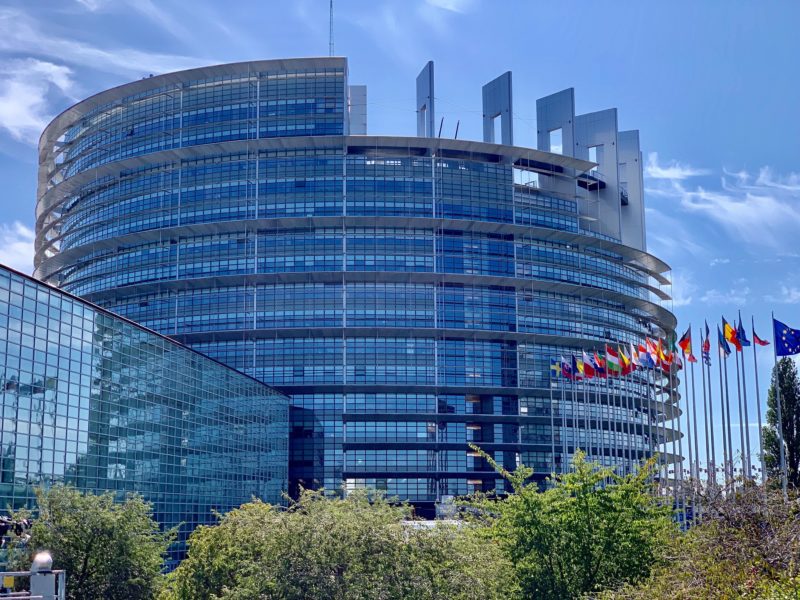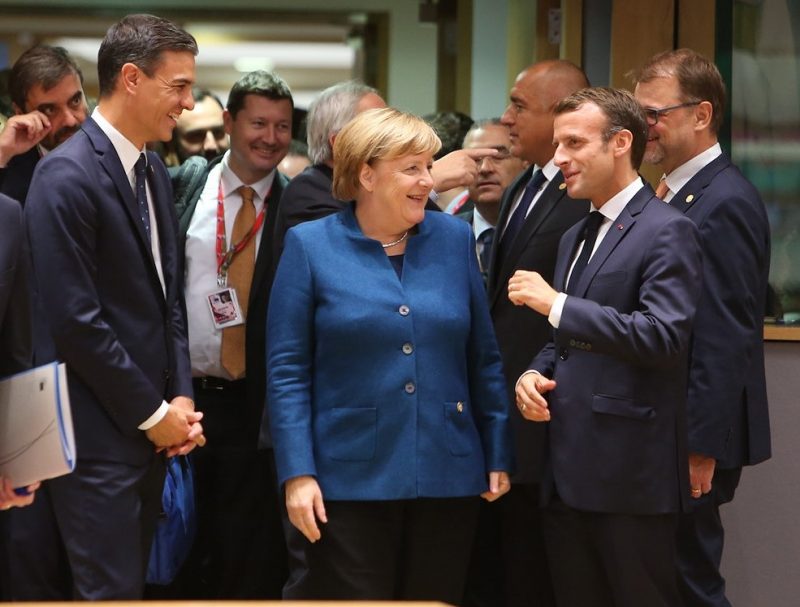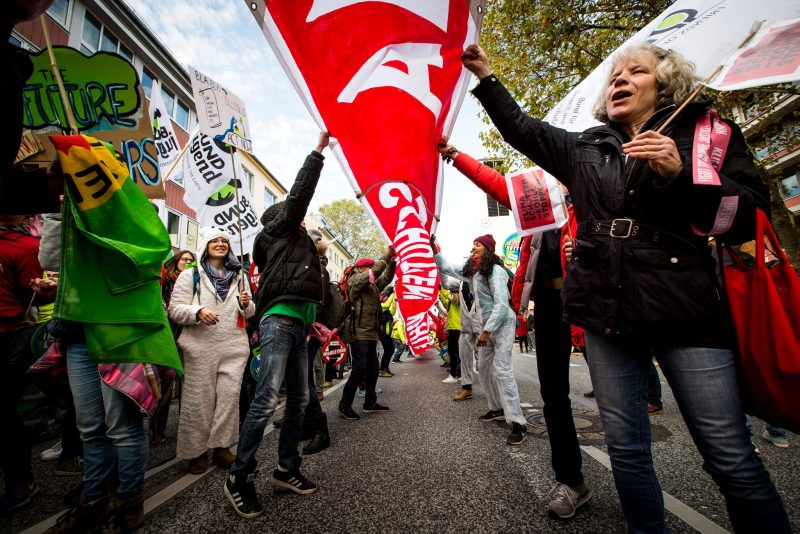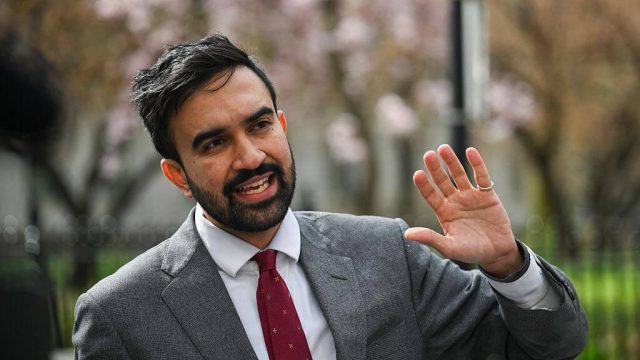The EU Green Deal – is it the real deal?
The EU's new masterplan for the transition to a green economy is here - but how does it stack up against what's needed?

What should we make of the European Green Deal? Launched with such fanfare at the end of 2019, there was much optimism and many questions about the EU’s new economic masterplan. Is this new agenda responsible? Credible? Deliverable? Having now had the chance to speak with EU policymakers in Brussels, I look at the EU Green Deal with fresh eyes.
Firstly, I highly commend the official EU Green Deal communication document to you. In ambition I give it a strong 8 out of 10. It is the most comprehensive and intelligent economic reform agenda anywhere in the world - and the fact that it has been created not by one government, but by the world’s largest trading block, makes it of global significance. If it can be a success, there can be a new hope for a green economy - and the planet.
But why do I rate it so highly? What are the challenges to its full implementation? What would make it a 10 out of 10? And what should we, the Green Economy Coalition (GEC) network and community, consider doing to make that ambition a reality?
Why 8 out of 10?
A month ago, we launched our Green Economy Tracker – the first tool of its kind to rate government ambition for green economic reform. The good news is that the European Green Deal stacks up well against our benchmark. It covers the key policy areas - governance, finance, tax, subsidies, and sets targets for industrial strategy and sectors like energy, transport, agri-food, and even greening brown industries such as steel production. Crucially, it explicitly recognises the need for societal engagement and a just transition. It also states clearly that economic activity must do-no-harm and allow restoration of, and investment in, nature.
Further, it tries to connect and build the coherence of its economic reform agenda in alignment with existing global policy processes in motion within the G7 and G20, as well as UNFCCC and UN CBD fora. Above all this it also sets a very ambitious policy timetable.
So, what are the key obstacles that stand in the way of Europe’s new vision?

Four challenges
1. Competitiveness matters
There is already pressure mounting from certain EU members to lower the ambition and extend the time frame of the deal. They carefully couch their opposition in phrases such as “…We must find a balanced approach between competitiveness and climate neutrality’ and “...We cannot become uncompetitive on global markets”.
The discussions around competitiveness must not be dominated by a few incumbent industries who stand to lose, (or need to change the most), with the deepest pockets and most vocal lobbyists. The new economy winners – green businesses, social entrepreneurs, young people about to enter the job market – need to shout louder to be heard. How can we all make sure the winners are heard above the noise?
2. Global inaction
There is an element of truth to the notion that if the rest of world does nothing, or indeed backtracks on climate commitments, then European action will be swimming against the tide and may undercut the uncompetitive of its industries, in the short term. The key to Europe’s ambition for green economy leadership is that the rest of the world will - must - follow in a race to the top.
Therefore, European domestic ambition must be matched by equally ambitious support and green economic stimulus for developing countries. A domino effect of countries around the world also forging ahead on their own ‘Green Deals’ can achieve a tipping point that will neuter the argument from competitiveness, and indeed will accelerate the counter argument – ‘If we don’t reform, we’ll become uncompetitive.’
And this is a very real point. Some estimates from within our coalition have found cumulative private investment in the green economy over the last decade has already topped $10 trillion – but this is not yet enough, and represents only around 1% of a global economy in need of systemic overhaul.
“ The transition to a green economy will only succeed if there is an informed electorate who understand it, support it, and will vote for it. And not just through one electoral cycle but many. The ambition of this new deal is to put the economy in service of people.”
3. Show me the money
The EU Green Deal comes with a price tag of €1 trillion over 10 years, and it is here that the battle is most fierce. Some critics say that the figure is not new money and hence is “Old wine in new bottles” – especially in comparison to the potentially €4.5 trillion found as emergency funding for European banks between 2008-11.
Arguments in support of new fiscal rules allowing greater leeway for governments to borrow and invest to kick start this transition (a ‘green’ golden rule) jar against the founding EU fiscal canon of ‘sound’ finances, low debt/GDP ratios, and deficits of no more than 3% of GDP.
Consequently, there is much attention on further private finance as a parallel investment channel, via new incentives for capital markets to help deliver the transition. A new balance between public and private investment is emerging, but EU budgets are the mechanism from which real political commitment will be shown, and the EU needs to demonstrate sufficient ambition to give a clear signal to markets.
However, who pays could also be a ripe source of public engagement. Deciding our ‘common but differentiated responsibilities’ within societies to deliver the EU Green Deal is an important public debate that needs to continue amongst business, government, finance and citizens.
4. Make my life better
To a British eye, cursed to view Europe through the fog of Brexit, there is a lesson writ large across this policy. The EU can so easily come across as a ‘rule maker’, pushing rules and constraints on people who did not ask for them; potentially driving resentment, opposition and even protest as times get tougher. The EU Green Deal gives some attention to a just transition - to re-skilling workers, helping mining communities, and broader social engagement. But it is still a minor point, closer to a footnote than to the main event. This is a serious missed opportunity, and ultimately why I can only give the plan 8/10.
The transition to a green economy will only succeed if there is an informed electorate who understand it, support it, and will vote for it. And not just through one electoral cycle but many. The ambition of this new deal is to put the economy in service of people.
National dialogues of the kind that the GEC has been pioneering, citizen’s assemblies and other forms deliberative democracy – as already trialled in France, Belgium, the UK and proposed by Ursula von der Leyen – would allow people to engage with the EU Green Deal, shape how it impacts on their lives, and ensure it is rooted in social justice. Indeed, there is a need now to redefine what it means to be European, and why this project can help deliver those European dreams.

A movement
So, finally, what should our GEC movement consider doing? Here it is clear.
- We should engage constructively on each area of the new policy – whilst keeping an eye on the overall policy suite.
- Help tell the story of transition, including helping the voices of the new green industry champions crowd out the vested brown interests.
- Challenge national politics to support and ensure that the global ambition and nations in the rest of the world are inspired by this European leadership.
- Work together to make sure the investment is more ambitious and flows quickly.
- And (in my view, most importantly) lobby for citizen assemblies and national dialogues on this new green economic vision for Europe, so that policies can be rooted in communities, not commissions.
I know many in our community will be disappointed with the 2030 and 2050 targets. To them I say: Turning the ship is hardest, accelerating the ship will be easier when it is heading in the right direction. Let us live with targets until after the battle for the direction of Europe is won.
- Oliver Greenfield


